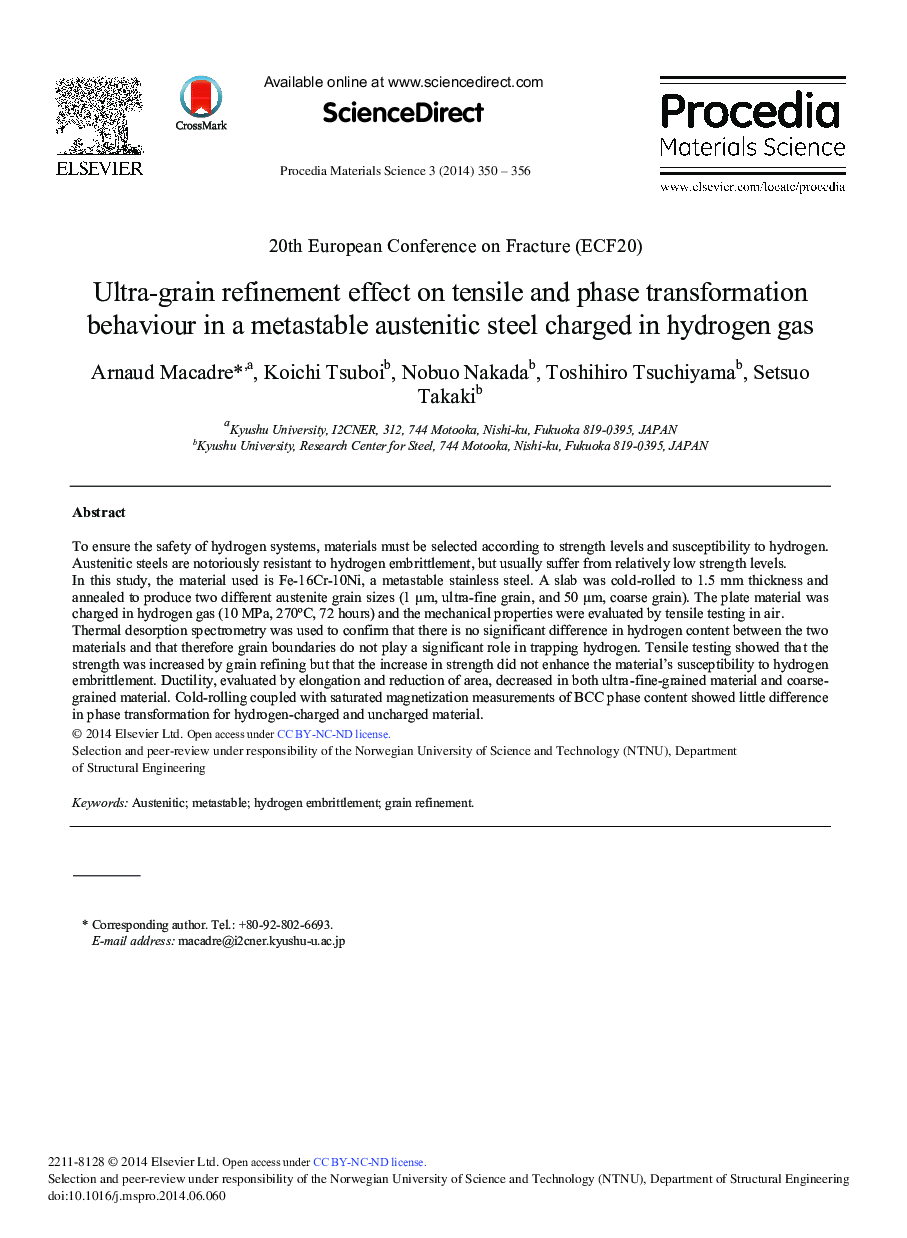| کد مقاله | کد نشریه | سال انتشار | مقاله انگلیسی | نسخه تمام متن |
|---|---|---|---|---|
| 1634801 | 1516782 | 2014 | 7 صفحه PDF | دانلود رایگان |
To ensure the safety of hydrogen systems, materials must be selected according to strength levels and susceptibility to hydrogen. Austenitic steels are notoriously resistant to hydrogen embrittlement, but usually suffer from relatively low strength levels.In this study, the material used is Fe-16Cr-10Ni, a metastable stainless steel. A slab was cold-rolled to 1.5 mm thickness and annealed to produce two different austenite grain sizes (1 μm, ultra-fine grain, and 50 μm, coarse grain). The plate material was charged in hydrogen gas (10 MPa, 270 °C, 72 hours) and the mechanical properties were evaluated by tensile testing in air.Thermal desorption spectrometry was used to confirm that there is no significant difference in hydrogen content between the two materials and that therefore grain boundaries do not play a significant role in trapping hydrogen. Tensile testing showed that the strength was increased by grain refining but that the increase in strength did not enhance the material's susceptibility to hydrogen embrittlement. Ductility, evaluated by elongation and reduction of area, decreased in both ultra-fine-grained material and coarse- grained material. Cold-rolling coupled with saturated magnetization measurements of BCC phase content showed little difference in phase transformation for hydrogen-charged and uncharged material.
Journal: Procedia Materials Science - Volume 3, 2014, Pages 350-356
